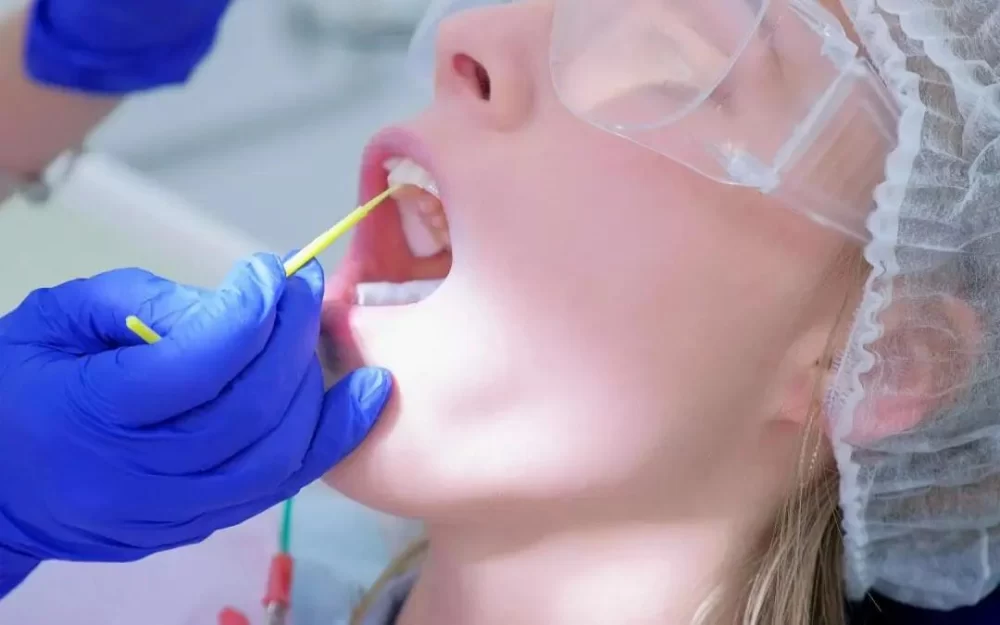
The Essential Benefits of Regular Fluoride Treatments for Your Oral Health
- The Importance of Fluoride for Teeth
- How Fluoride Works in Dental Care
- Real-Life Benefits of Regular Fluoride Treatments
- Professional Recommendations for Fluoride Use
- How to Get Started with Regular Fluoride Treatments
The Importance of Fluoride for Teeth
Fluoride is often referred to as nature's cavity fighter. It is a mineral that occurs naturally in water and soil, and it's widely used in dental care due to its incredible ability to prevent tooth decay. Fluoride works by remineralizing tooth enamel, making it stronger and more resistant to acid attacks from bacteria and food. For people living in areas where the water is not fluoridated, fluoride treatments can provide a crucial defense against cavities and tooth decay.
How Fluoride Works in Dental Care
Fluoride strengthens teeth by helping to rebuild weakened enamel. When applied directly to the teeth, fluoride interacts with the enamel to form a more acid-resistant mineral. This process is called remineralization. Fluoride not only repairs early stages of decay but also helps prevent new cavities from forming. This is especially important for children and adults alike who may be at higher risk for cavities due to diet, genetics, or lack of proper brushing techniques.
Real-Life Benefits of Regular Fluoride Treatments
Fluoride treatments go beyond just cavity prevention. For example, many patients report a noticeable reduction in tooth sensitivity after regular fluoride applications. This is because fluoride strengthens the enamel, making it less susceptible to the triggers that cause discomfort, such as cold or hot temperatures. Furthermore, fluoride helps reduce the need for invasive dental treatments like fillings and root canals by keeping teeth strong and healthy for longer periods.
In one study, patients who received professional fluoride treatments every six months showed a significant reduction in cavity formation compared to those who did not. It’s also important to note that children who receive fluoride treatments regularly have a much lower incidence of cavities, making it a key component of pediatric dental care.
Professional Recommendations for Fluoride Use
Dental professionals recommend fluoride treatments for both children and adults, especially for those at higher risk for dental decay. Regular fluoride treatments are often part of routine dental visits, typically every six to twelve months. However, individuals with dry mouth conditions, braces, or a history of cavities may benefit from more frequent treatments. Your dentist will provide personalized recommendations based on your unique oral health needs.
How to Get Started with Regular Fluoride Treatments
Getting started with fluoride treatments is simple. Speak with your dentist to discuss the potential benefits based on your current oral health. They may apply a concentrated fluoride gel, foam, or varnish to your teeth during your dental check-up. Some people also use fluoride toothpaste or mouth rinses as part of their daily routine, which can complement professional treatments.
If you’re looking for long-term oral health protection, incorporating regular fluoride treatments into your routine can be one of the best investments in your smile. It’s an easy and affordable way to ensure your teeth stay strong and cavity-free for years to come.
In conclusion, regular fluoride treatments offer a host of benefits, from preventing cavities to reducing tooth sensitivity. If you’re ready to take charge of your oral health and protect your smile, talk to your dentist today about incorporating fluoride treatments into your dental care routine.







 Brian M. Weinberg, D.M.D., Ltd.5.0 (6 review)
Brian M. Weinberg, D.M.D., Ltd.5.0 (6 review) Dental Implants and Periodontology of Massapequa4.0 (198 review)
Dental Implants and Periodontology of Massapequa4.0 (198 review) Alivio Dental4.0 (27 review)
Alivio Dental4.0 (27 review) Midjersey Family Dentistry4.0 (86 review)
Midjersey Family Dentistry4.0 (86 review) Cooley Smiles Everett4.0 (795 review)
Cooley Smiles Everett4.0 (795 review) Plum Grove Family Dental4.0 (87 review)
Plum Grove Family Dental4.0 (87 review) The Importance of Oral Health Education During Pregnancy for a Healthy Pregnancy
The Importance of Oral Health Education During Pregnancy for a Healthy Pregnancy Best Tips for Brushing Your Teeth Properly for Healthy Gums: Essential Techniques for Oral Health
Best Tips for Brushing Your Teeth Properly for Healthy Gums: Essential Techniques for Oral Health Why Skipping Dental Checkups Can Lead to Bigger Oral Health Problems
Why Skipping Dental Checkups Can Lead to Bigger Oral Health Problems Advantages of Porcelain Dental Restorations
Advantages of Porcelain Dental Restorations How Can Diabetes Cause Tooth and Gum Problems? Preventing and Managing Oral Health Issues
How Can Diabetes Cause Tooth and Gum Problems? Preventing and Managing Oral Health Issues Healthy Habits for Promoting Good Oral Health and Hygiene: Tips for a Healthy Smile
Healthy Habits for Promoting Good Oral Health and Hygiene: Tips for a Healthy Smile